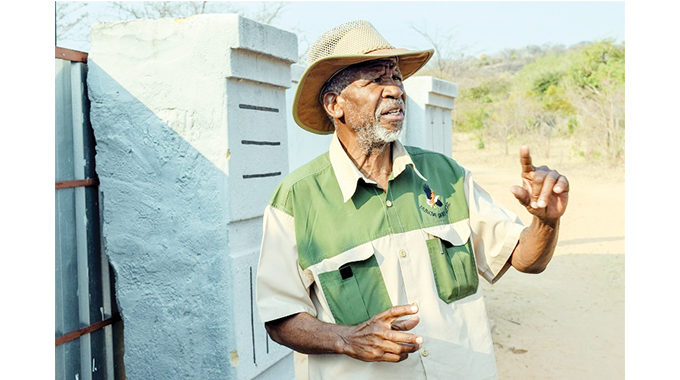Orphan reaps rewards of leap of faith into rabbitry

Flora Fadzai Sibanda, Chronicle Reporter
SOON after his mother’s death in 2006, Mr Nkosilothando Sikhosana (36) of Jikamkhonto village in Matobo District, then 20, took a leap of faith and used his savings to buy two rabbits.
Despite lack of specialised expertise in rabbit farming, he gradually developed a strong passion for bunnies and managed to grasp the concept.
He was inspired by a friend who used to keep rabbits as pets.
Today, Mr Sikhosana is a successful commercial rabbit farmer with 80 rabbits of British Giant breed kept at his rabbitry in Jikamkhonto village.
A British Giant can weigh up to 7 kg it is the largest of all English rabbit breeds.
They were bred for a larger colour variety like opal, white, sable, blue, grey and black. These rabbits need to be groomed regularly in order to keep the fur in top condition.
The average lifespan is four to six years, which is quite low for rabbits. This breed is common in England.
Since venturing into rabbit farming 16 years ago, life has never been the same for the rabbit farmer. Rabbit breeding has turned into a profitable commercial venture, which has enabled Mr Sikhosana to reinvest the proceeds into his business while meeting other financial obligations.
He sells live and slaughtered rabbits to both locals and tourists. Each rabbit goes for US$10. Due to its taste and nutritional value, there has been high demand for rabbit meat. Rabbit meat is leaner and healthier and has higher protein, calorie, calcium and vitamin content than any other animal flesh.
“I never thought the two rabbits would one day change my life. Through breeding rabbits, I discovered that I can actually earn a living,” said Mr Sikhosana.
“While rabbits require less capital, limited space and a modest amount of food to survive, they need to be constantly monitored. Since I started this business, I have never looked back and neither do I regret taking the risk.”
Following his mother’s death, Mr Sikhosana has managed to modernise their homestead using proceeds from his business.
“Through rabbit farming, I have managed to modernise our family’s homestead. When my parents passed on, there was only one hut, but l have managed to build three more huts and I am also supporting my family through these rabbits,” he said.
Mr Sikhosana said he recorded brisk business during the “My Beautiful Home, Comba Indlu Ngobuciko” competition, which attracted a lot of local and international tourists
He said he now sells his rabbits to tourists who are attracted by the My Beautiful Home competition.
The competition which has been running for the past eight years, has seen people deep in the rural areas of Matobo district, participate by decorating their huts through painting them beautifully.
Inaugurated in 2014 by renowned historian Mr Pathisa Nyathi’s Amagugu Heritage Trust, the My Beautiful Home competition seeks to revitalise traditional hut painting using natural pigments such as soil, water, ash and charcoal.

Mr Pathisa Nyathi
Through the competition, the heritage trust seeks to revitalise the practice as a mechanism of recognising and appreciating the role of women in household and community development and preservation of cultural heritage in general.
Prizes are awarded to the best huts in terms of interior, exterior and best environment.
“The competition has attracted a lot of tourists to Ward 22 who came to see the beautiful home paintings. Just last month, l sold close to 50 rabbits with each going for US$10,” said Mr Sikhosana.
“A lot of tourists prefer rabbits either for keeping as pets or as delicacy and therefore during that period I get a lot of business.”
Mr Sikhosana said rabbit farming has large profit margins with the output consistent throughout the year as it is not a seasonal enterprise. In a year, rabbits can breed six times depending on how they are fed.
Female rabbits take five to six months to get mature while male ones attain maturity at six to seven months from the time of their birth.
Rabbits’ health is highly dependent on how their shed is maintained. If the shed is unclean, the rabbits easily develop infections which result in lower growth rates.
Mr Sikhosana said he also gets manure for his crops through breeding rabbits.
“My future plan is to expand and have more rabbits so that I can be able to supply at a larger scale,” he said – @flora_sibanda











Comments